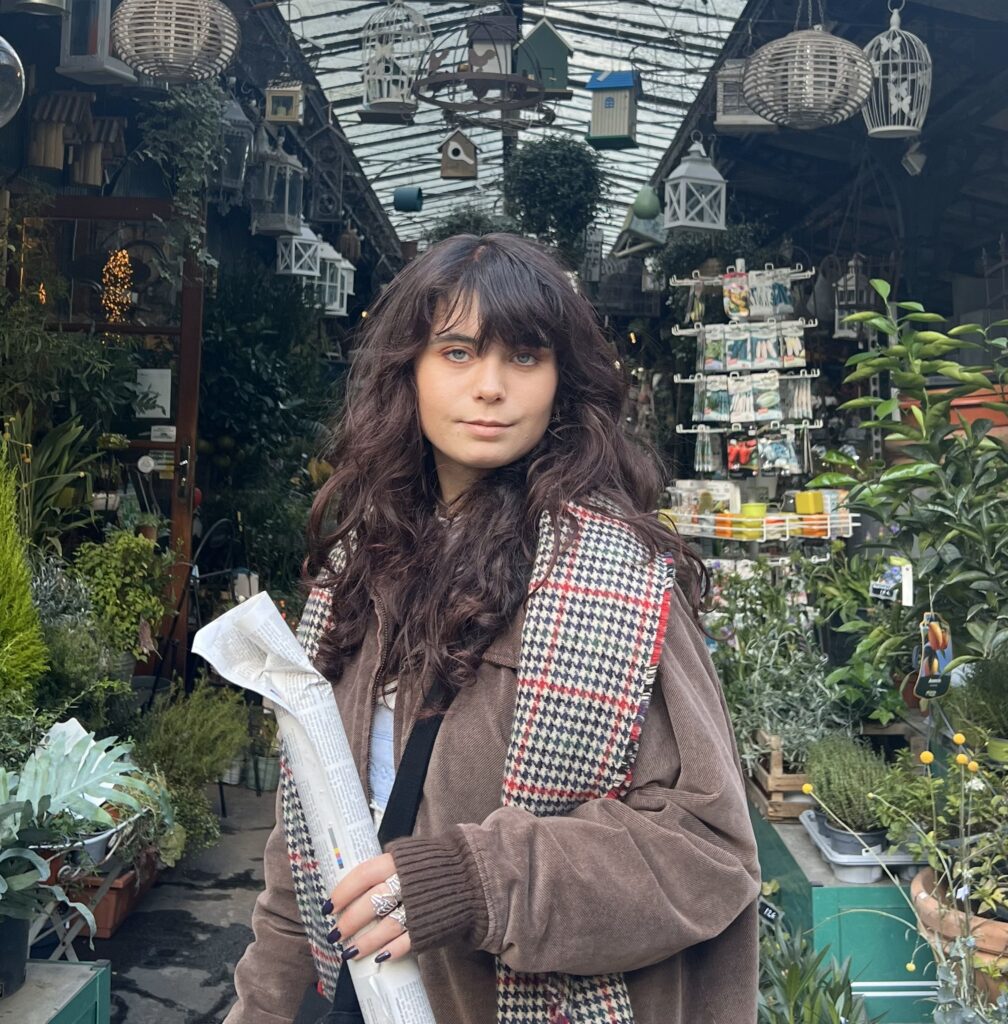Opinion piece by Sofiia Maior
Back in my school days, my teachers would always refer to vyshyvanka as one’s identity code, the DNA of a nation. Now those distant words have started to take shape in my mind, forming more or less a tangible longing to collect and preserve any attributes from my homeland following my sudden move to the Netherlands in September 2022.
A bus ticket, a candy wrapper with Cyrillic letters, things I once dismissed have become vessels of belonging. It’s curious how the mundane transforms once it’s distanced from its origin. Away from home, I am no longer a passive observer of culture but an active curator, longing to experience that familiar “mundanity” I once took for granted. Never before had I felt a genuine connection to the materialistic symbols of my home country as when I left Ukraine to study in the Netherlands.
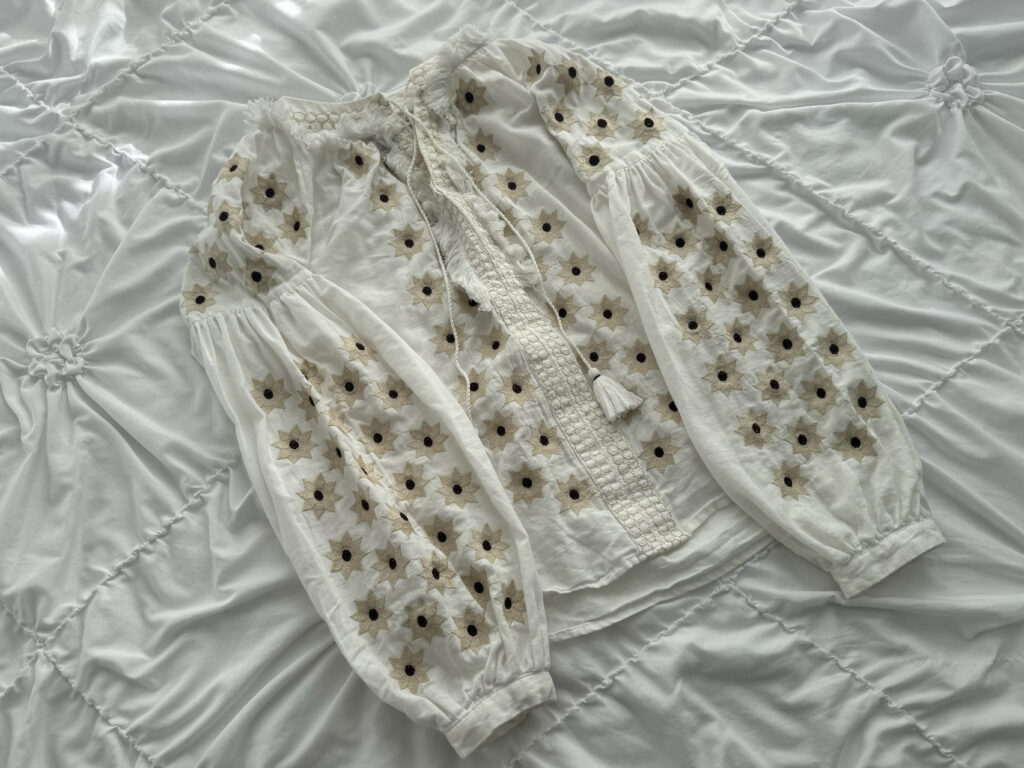
I received my first vyshyvanka when I was 17, finishing school and bracing myself to study abroad. My parents gave it to me as a reminder, a small piece of connection, already knowing that this summer would be my last summer spent in Ukraine and my hometown – Chernivtsi.
White, with fluffy tassels at the ties and covered with a haze of cream stars, I chose it instead of a prom dress. Because during the war, there was no time for celebrations, and vyshyvanka was the only prom dress one was allowed to have. That’s how my dream of a white prom dress changed to an embroidered shirt. Thus, even after prom my parents would always emphasise the rationale in having one – there is no better way to showcase and embrace your culture than to wear it.
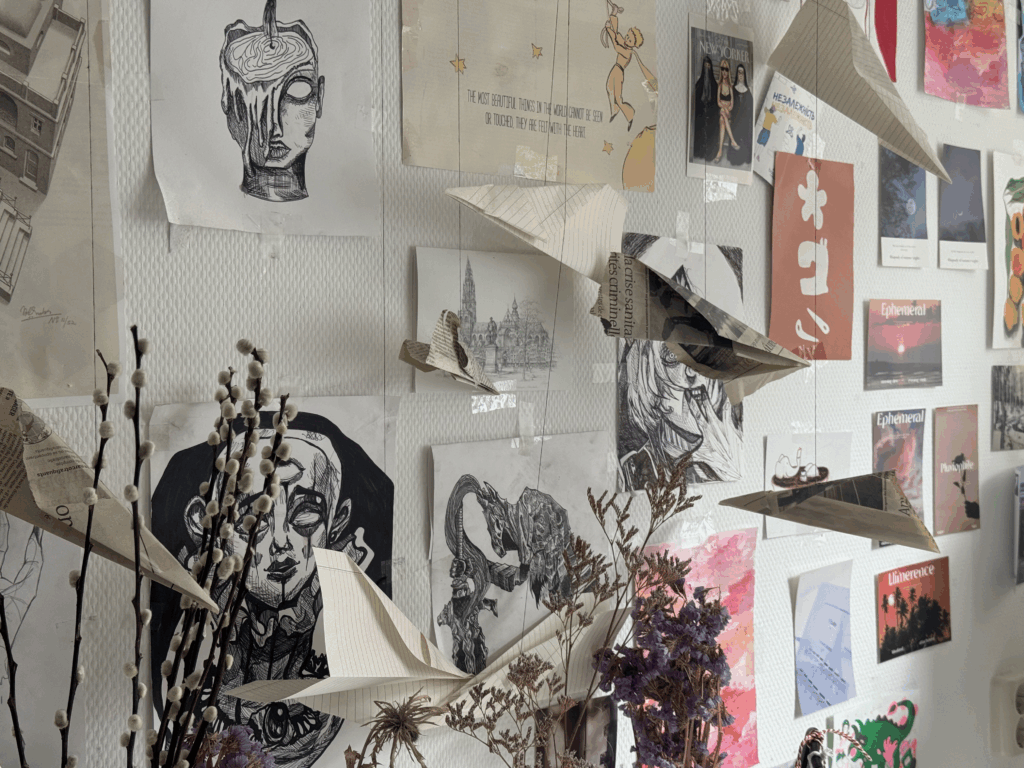
My own room in Chernivtsi was always more than just a mere space, but rather a vivid observatory of life, a kaleidoscope of pieces that were never to meet together if it wasn’t for my obsession with vibrant, evocative spaces – the perfect spot to relive memories and create.
And surely, never before had I understood the importance of preserving the mundane, even when war was too elusive to be present in my mind. I never paid attention to the physical attributes of my own culture, collecting only souvenirs from far away trips. Now, alongside the metamorphosis of my surroundings, I accidentally traded my spectacle of the mundane for the keepsakes from home, as vyshyvanka – once a plain embroidered shirt one would wear only once a year, turned into a souvenir not from a faraway land, but from a place I called home for 17 years.
It made me wonder: what parts of myself had I left behind without even noticing? What parts did I forget to collect before leaving my small sanctuary of a room?
When I first wore my parents’ present abroad, I felt a previously unknown feeling of indifference. As a fluent English speaker and an international student surrounded by fellow classmates from around the globe, I never felt like a stranger. But somehow, the physicality of the vyshyvanka worn on my body worked as a teleporter, almost as if I was standing in my own room, getting ready to step onto the Chernivtsi streets I’d walked for nearly 20 years, paved with cobblestone and surrounded by small yet majestic buildings of far gone eras. The distant land is here now, and the homeland becomes further and further every day.
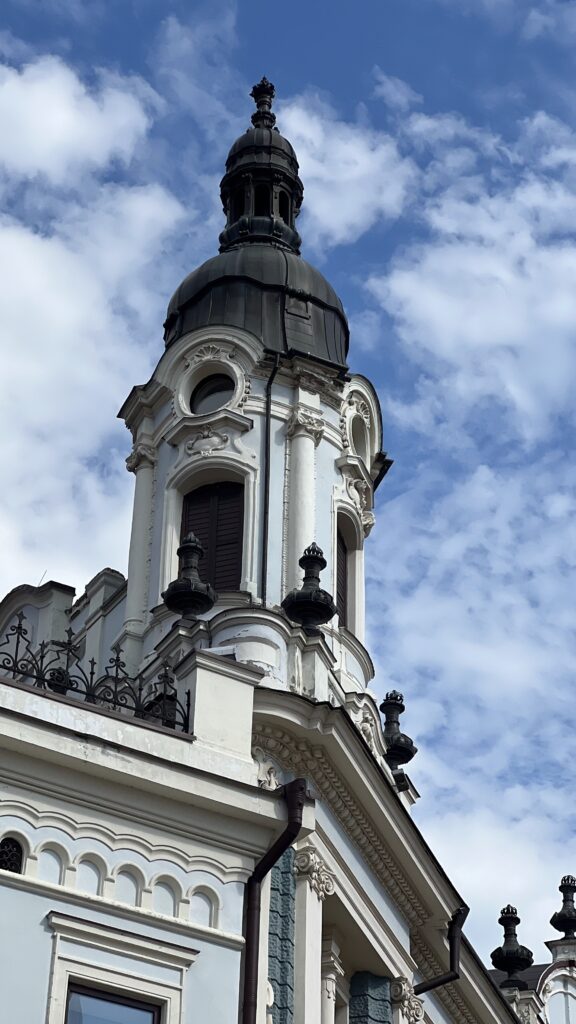
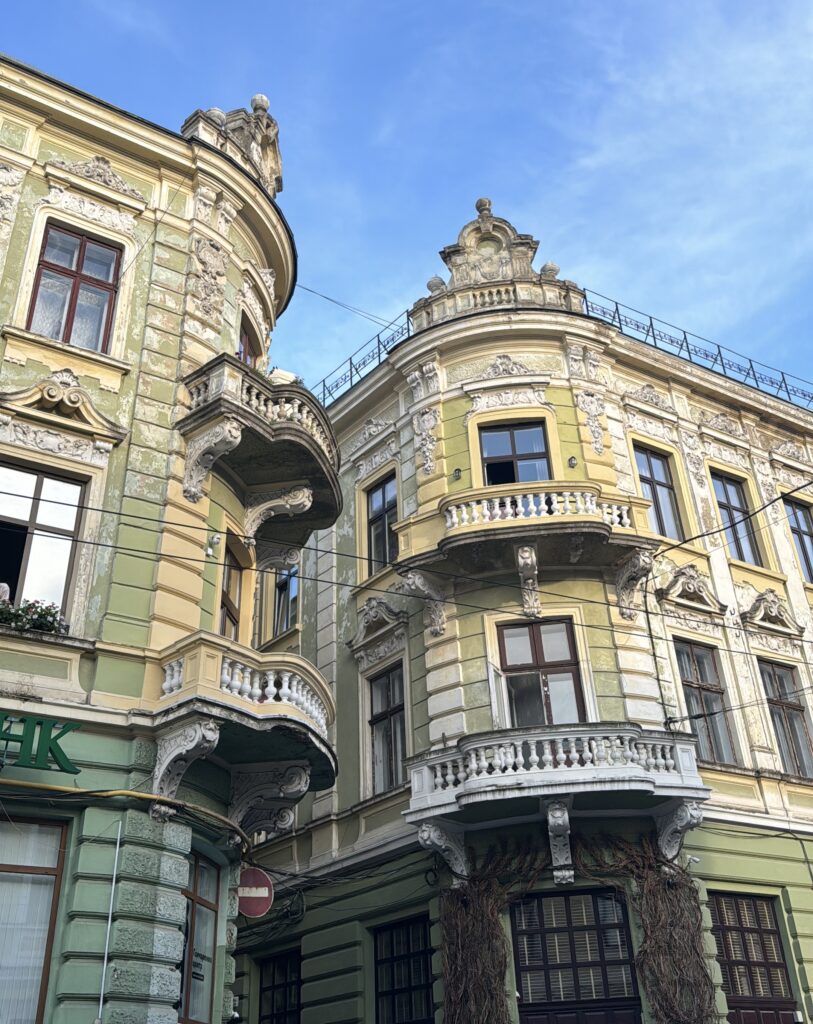
And yet, despite the quiet comfort the vyshyvanka gave me, I couldn’t help but feel exposed. It wasn’t the stares, those were rare, but the confrontation with myself. Until that moment, I had managed to compartmentalize: speak predominantly in English, follow the customs, absorb the newness. But that day, the embroidery on my chest stitched together fragments I didn’t know were loose. This was the first time when I understood what it truly means to “possess your culture” – having this physical item of my identity.
Suddenly, I wasn’t just a student in a foreign country, I was a daughter, a graduate of a linguistic lyceum in Chernivtsi, a person who grew up with poetry lessons about Symonenko and who heard news of war over morning coffee. The vyshyvanka did not shout this out loud. It whispered it, delicately, to me and to anyone who cared to listen.
Displacement doesn’t just take things away. It offers you a choice: to forget, or to remember deliberately.
Perhaps that’s the paradox, as it’s only when you leave that you begin to collect the “mundanities” of your own culture. Only when you can see the distance do you truly long for physical proximity to home. The vyshyvanka was never just an item. It was a reminder that culture isn’t a grand, distant idea, too elusive to be felt. It’s in the thread, in the stitch, in the mundane. And to mundanity, we all belong, and it’s these everyday stitches of life that shape oneself and that are truly valuable to be collected.
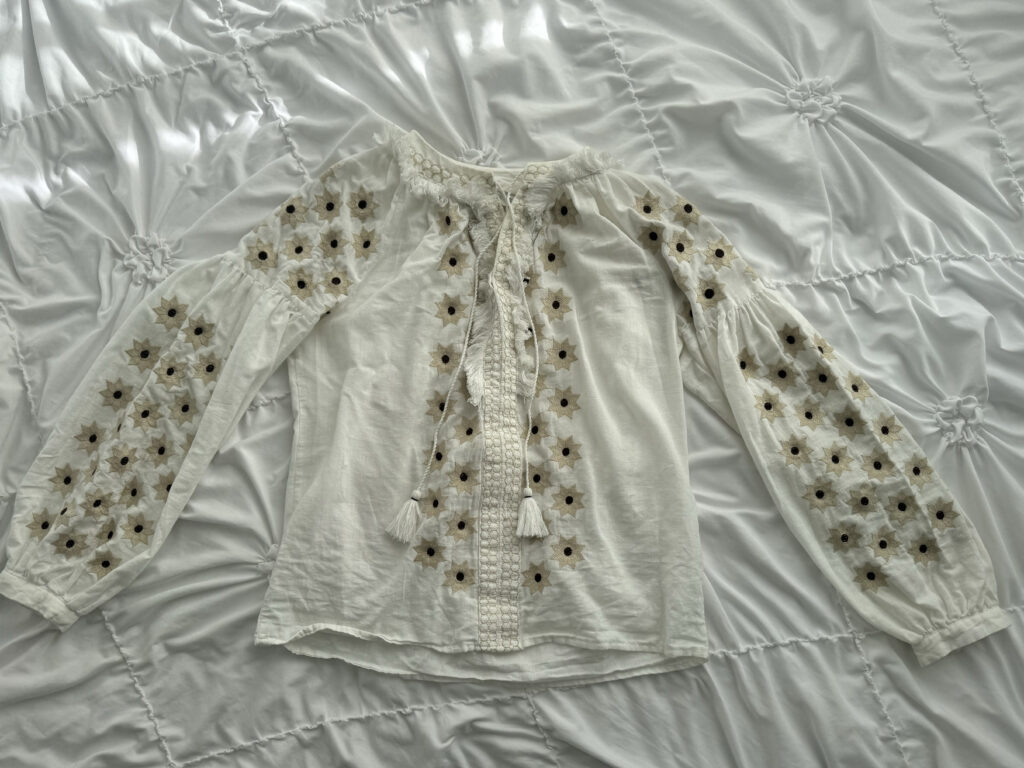
VATAHA is hosting its third annual Vyshyvanka Day event on 01 June 2025 in The Hague to celebrate Ukrainian vyshyvanka and its deep personal meaning to each proud wearer. Join Sofiia and other VATAHA volunteers in learning more about Ukrainian folk arts and other European embroidery through lectures and workshops.
About the author
Sofiia Maior is a writer and communication manager, studying Communication and Media in Rotterdam. Passionate about arts, culture, and storytelling, she explores themes of her interest through writing and painting. At VATAHA, she contributes editorial content and leads our social media agenda to embrace Ukrainian culture abroad.
